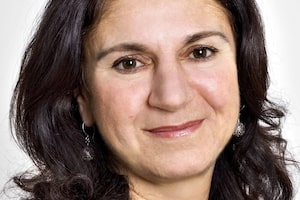Armine Yalnizyan is senior economist at the Canadian Centre for Policy Alternatives and vice-president of the Canadian Association for Business Economics.
Britain's largely unexpected decision to leave the European Union has unleashed political and economic mayhem that will change the world. Whether those changes flow with the current of history, or against it, remains to be seen.
Within hours of the vote, emboldened copycat "leavers" were making the news. Sweden, Denmark, the Netherlands, France and Greece could all go the same way. Of these, the greatest existential threat to the EU would be the departure of France, whipped by self-proclaimed Madame Frexit, Marine Le Pen.
Countries once eager to access the EU's $20-trillion market have seen a rise in Euroskepticism, triggered largely by Brussels's handling of the refugee crisis and immigration policies in general, but also by suspicions that life would be better if more decisions were made closer to home – wherever that is.
Far-right politicians have dominated this discourse, and not just in Europe. Donald Trump hailed Brexit as "a great thing" at his golf course in Scotland and praised Scots for taking back their country, "just like we will take America back." Off in the distance, Texas secessionists could be heard renewing their calls for "Texit."
But take our countries back from what? Legitimate frustrations – arising from the global economy's inability to reverse intractable inequalities – are being harnessed to protest, rather than address, problems stemming from globalization and technological change. As happens so often in periods of economic uncertainty, discontent has been redirected at scapegoats in our communities, people who are mostly just like you and me: immigrants.
Immigration became the white-hot issue of the Brexit campaign, as both "Remain" and "Leave" politicians found it politically expedient to characterize newcomers as people who take your job, drag down your wages and take advantage of your social services. This is not a new narrative in Britain, but Prime Minister David Cameron took it to a new level. Before the election of 2010, he pledged to cut net migration below 100,000 people a year. Instead, net migration rose to 333,000 by 2015, only half from the EU. Mr. Cameron's response was to demand major renegotiations with the EU regarding benefit entitlements and announce plans to "root out" illegal immigrants.
The facts belie both his rhetoric and the xenophobes' case for Brexit. Almost 60 per cent of immigrants to Britain in 2015 came with a job waiting for them. Despite the increase in immigration, Britain's unemployment rate has been falling. It was 5 per cent on the eve of the referendum, a level last seen in 2005. At 74.2 per cent, the employment-to-population ratio is the highest it has been since comparable records began being kept in 1971. Wages are rising at one of the highest rates in the past five years.
It was worse than disingenuous to target immigrants as the root of Britain's problems. Even as rich but aging countries rely more and more on immigration, political leaders have normalized racist sentiment by their own rhetoric, and by their tolerance of others' xenophobic behaviour.
Years of austerity have taken their toll, and slowing growth assures that more cuts lie ahead, regardless of who forms the government. The slower the growth, the more the economy feels like a zero-sum game. Everyone is seen as a competitor: For someone to make gains, someone else has to lose. Trade-offs are more difficult, politics are more fractious.
All over the world, pro- versus anti-status quo positions line up along the "have something to lose/have nothing to lose" spectrum. Neither erecting borders nor taking them down resolves anything. Historically, populism has not offered a way forward, only a way back.
But there is no back to go to. Cities around the world are growing and becoming more diverse as economic opportunity, aging populations and climate change push and pull a record number of people to find new homes.
Brexit may interrupt the arc of history for the next five months or five years, but history points unambiguously in one direction. Humanity is more connected than ever. Irreversible forces of international trade, digital networks and an emerging global culture make us aware of each others' realities in real time, irrespective of geography or language.
It is as if we have returned to the biblical story of the Tower of Babel, where humanity was initially united. We are on the brink of understanding how we have more in common than we are different, how we are more interdependent than independent, and how, together, we create unparalleled prosperity.
Our global reality is not a place of leavers and walls – just the opposite, in fact. Instead of the politics of exit, it is time for a politics of connection. Can the populists please run with that for a while?
 Armine Yalnizyan
Armine Yalnizyan